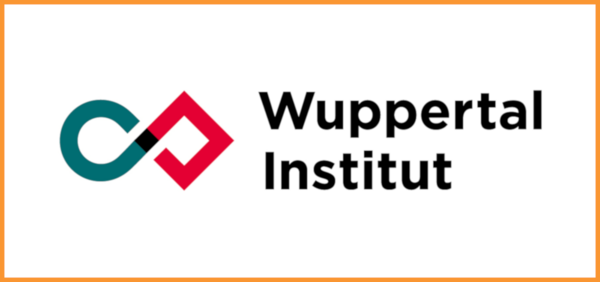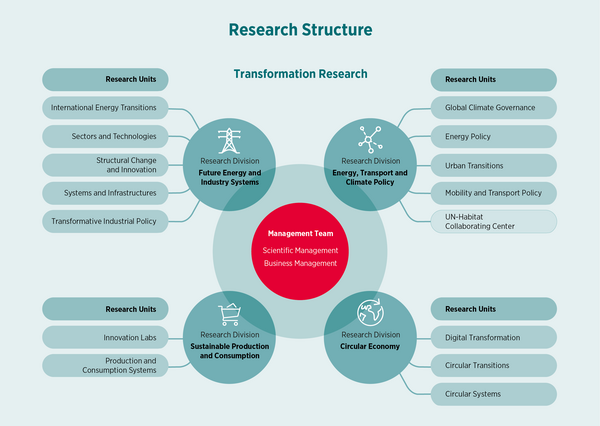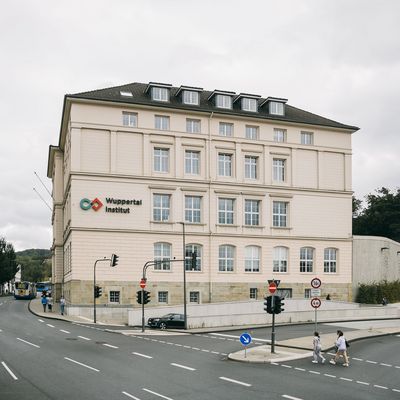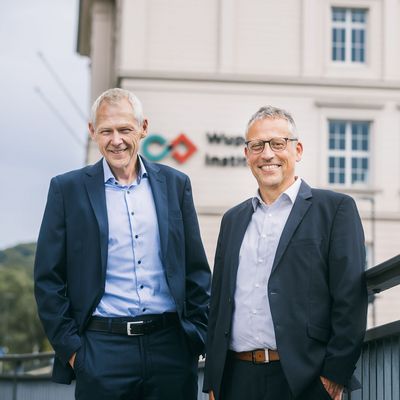The Wuppertal Institute is an implementation-oriented research institute for sustainability and transformation research with a focus on impact and practical application. Since its foundation in 1991, the institute’s core mission has been to contribute to the achievement of global sustainability goals. Particular emphasis lies on showcasing and actively shaping transformation processes for a climate-friendly and resource-efficient world. To this end, the work of the institute’s scientists includes researching and developing practical guidelines and strategies for business, politics and society – at local level, in Germany, in Europe and around the world. With its interdisciplinary team of more than 300 employees, its transdisciplinary and transformative research approach, and its involvement in diverse scientific networks, the institute is in an excellent position to fulfil its mission.
The Wuppertal Institute is driven by the major challenges facing society and focuses on seven arenas of transformation: the transition in energy, resources, nutrition, urban living, mobility and industrial activity as well as prosperity and consumption. In addition, the institute works to address questions relating to the management of structural change and the opportunities and limitations of digitalisation. With regard to the latter, particular attention is paid to the extent to which digitalisation can be put on a sustainable footing and support the implementation of transformation processes. Through research, the institute aims to develop a better understanding of change processes and to generate target knowledge and system knowledge, thus serving as a catalyst for transformation processes. The Wuppertal Institute works intensively with partners from the worlds of science and industry to generate knowledge in these three areas and refers to their interplay as “Zukunftswissen” (future knowledge).
The Wuppertal Institute is organised into 15 research units within four divisions: Future Energy and Industry Systems; Energy, Transport and Climate Policy; Sustainable Production and Consumption; and Circular Economy. Since the institute was founded in 1991, the number of scientists it employs has increased more than sixfold. At present, it has more than 300 employees, with women accounting for over 50 per cent. The institute’s researchers currently supervise around 150 projects in 50 countries, publish some 350 scientific publications annually, teach 20 courses at universities and colleges and deliver about 450 scientific lectures each year. With more than 4,000 media reports that either report on the institute or refer to its work, its employees actively communicate their research findings to politics, business and society. Although the institute receives basic funding from the state of North Rhine-Westphalia, the sole shareholder in the non-profit limited company, it is mainly financed by third-party funds.
Locations: Wuppertal, Berlin
Foundation: 1991 by Professor Ernst Ulrich von Weizsäcker
Staff: 300+ employees
Divisions: Future Energy and Industry Systems; Energy, Transport and Climate Policy; Sustainable Production and Consumption; Circular Economy
Management Board: Prof. Dr. Manfred Fischedick (President and Scientific Managing Director), Michael Dedek (Administrative Managing Director)
Wuppertal Institut für Klima, Umwelt, Energie gGmbH
Döppersberg 19
42103 Wuppertal
Germany
+49 202 2492 0
info@wupperinst.org
www.wupperinst.org/en





